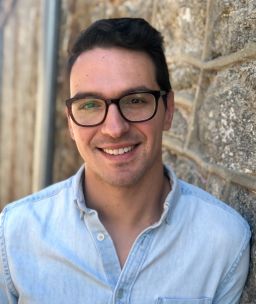Editor’s Note: Igor Volsky (@igorvolsky) is the executive director of Guns Down America. His book, Guns Down: How To Defeat The NRA And Build A Safer Future With Fewer Guns, is due out in April. Joseph V. Sakran (@JosephSakran) is director of emergency general surgery and trauma surgeon at Johns Hopkins Hospital. He is also the founder of This Is Our Lane, an organization of medical professionals who care for gun violence victims. The views expressed here are those of the authors; view more opinion on CNN.
Just hours after a suspected white nationalist terrorist used five firearms, including two semi-automatic weapons, to kill 50 people and injure dozens of others at two mosques in Christchurch, New Zealand, the island nation’s Prime Minister said something few American politicians would ever dare utter.
She promised to build a future with fewer guns by moving swiftly to tighten the nation’s gun laws and potentially ban semi-automatic weapons.


“I can tell you one thing right now: our gun laws will change,” Jacinda Ardern said at a press conference. “Now is the time for change.”
Ardern didn’t wrap the problem in the national flag or suggest that firearm-related injury and death are the price New Zealanders must pay for living in a free society, as American politicians all too often do. Instead, like many world leaders before her, Arden appears to be embracing a public health approach that seeks to reduce gun deaths by focusing less on changing human behavior of would-be murderers and more on creating an environment where everyone is less likely to be injured by a firearm.
Rather than stereotyping gun owners into good guys and bad guys, the public health approach recognizes that firearms are inherently dangerous and should be significantly harder to get.
Indeed, nations that adopted policies to raise the standard for gun ownership have saved thousands of lives.
After a gunman killed 35 people in Port Arthur, Tasmania, in 1996, Australia enacted a sweeping set of new common-sense gun reform policies. The government of Prime Minister John Howard within weeks of the massacre passed the National Firearms Agreement, which required Australians to register their guns as part of an integrated shooter licensing program, banned semi-automatic weapons, and instituted a gun buyback initiative. As a result, mass shootings disappeared almost entirely, according to a 2018 study from scholars at the University of Sydney and Macquarie University. The firearm suicide rate dropped by 57% and firearm homicides dropped by 42%.
The United Kingdom also responded to a school shooting in 1996 – during which a legally armed gunman killed a teacher and 16 5- and 6-year-old children, and injured 13 more – by banning all handguns within two years. In 2011, firearms killed 59 people in all of England and Wales, fewer homicides than in Washington, DC, alone (which had 77).
Germany also saw a 25% reduction in gun crimes from 2010 to 2015 after severely limiting gun ownership and subjecting potential gun owners to a lengthy waiting period.
The experience of our international peers suggests that we know what we must do to reduce gun deaths from suicides, homicides, and mass shootings. A similar story can be found here at home. States with stronger gun legislation in place have fewer firearm-related injuries and deaths, according to data from the Centers for Disease Control and Prevention and a project at the Boston University School of Public Health, which tracks gun laws in the 50 states.
The main reason those states are the exception and not the rule? Too many American lawmakers are so corrupted by the National Rifle Association’s money and influence that they’ve lost sight of their primary responsibility as public servants: protect the lives of Americans.
That’s part of the reason why Congress could not muster enough votes to pass legislation expanding background checks for firearm purchases in the aftermath of the Newton tragedy that killed 20 children between the ages of 6 and 7. It’s also why lawmakers failed to act following the shooting at the Pulse Nightclub in Orlando, Florida, or the shooting in Las Vega, Nevada, which left 58 people dead.
The good news is that times are changing. The American people will no longer stand by lawmakers who lack the moral courage to do the right thing. In fact dozens of elected officials lost their seats in the 2018 midterm elections and Americans around the country – particularly those who have been directly impacted by firearm-related injuries and deaths – are now actively pushing their government to advance bold reforms. In fact, according to the Giffords Law Center, a gun violence prevention advocacy organization, even most gun owners support policy changes like requiring individuals to obtain a firearm license and waiting a period of time before purchasing a gun.
Our lack of action has failed Americans in communities all across this nation. The sooner we succeed and push our nation’s leaders to follow the example of New Zealand and other nations that have already made strides to build a future with fewer guns, the more lives we’ll save.

